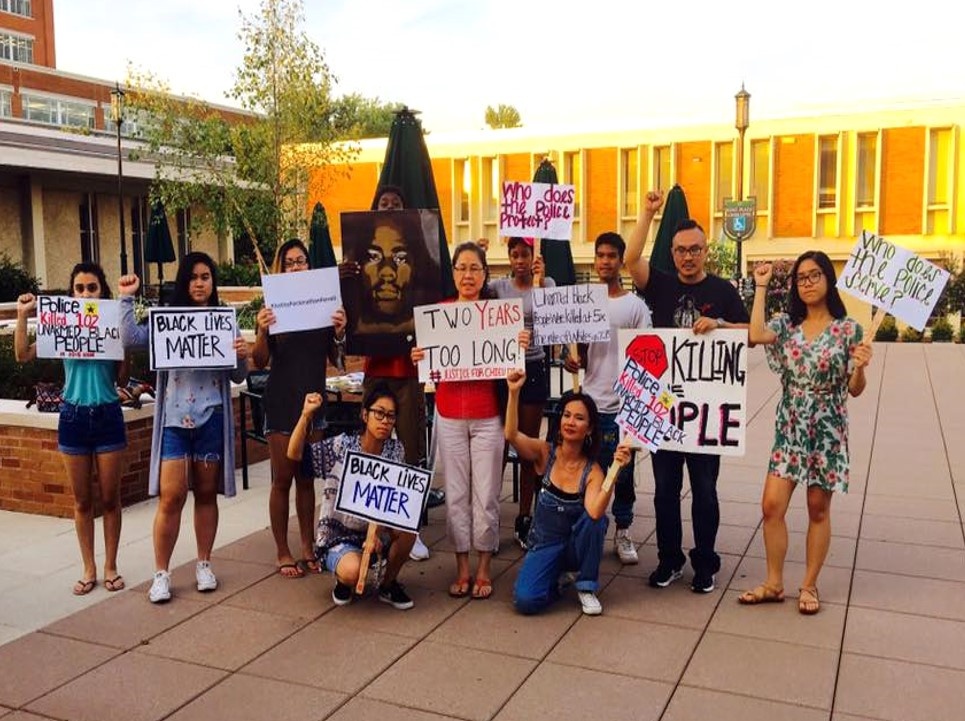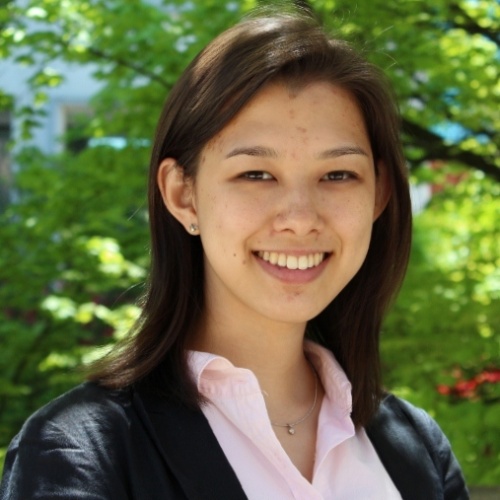The South's Asian Americans show solidarity in wake of police shootings

Members of the Southeast Asian Coalition (SEAC) attend a Black Lives Matter teach-in Charlotte, N.C. The group has been active in supporting Black Lives Matter. (Photo courtesy of SEAC via Facebook.)
For Monica Bourommavong, showing solidarity with the Black community and efforts like Black Lives Matter is not about standing up for a community that's removed from her own. It's about standing up for people who have been her classmates and neighbors.
Bourommavong, a youth coordinator with the Southeast Asian Coalition in Charlotte, North Carolina, grew up going to schools in the city that were majority Black. Many of the Southeast Asian youth she works with now live in predominantly Black neighborhoods and also attend majority Black schools, exposing them to the impact of criminalization in communities and schools on their African-American peers.
"It's important to show up for the people in your neighborhood, even if you haven't experienced what they have yourself," Bourommavong said. "It shows that you're aware of their struggle and you support them in fighting for their lives."
In the wake of last week's police shootings of Alton Sterling in Baton Rouge, Louisiana, and Philando Castile in Falcon Heights, Minnesota, efforts among Asian Americans to show solidarity with Black Lives Matter have spread across the country, including crowd-sourcing and sharing a letter addressed to Asian-American elders explaining young people's support for the movement. It reads in part:
… I support the Black Lives Matter movement. Part of that support means speaking up when I see people in my community — or even my own family — say or do things that diminish the humanity of Black Americans in this country. I am telling you this out of love, because I don't want this issue to divide us. I'm asking that you try to empathize with the anger and grief of the fathers, mothers, and children who have lost their loved ones to police violence. To empathize with my anger and grief, and support me if I choose to be vocal, to protest. To share this letter with your friends, and encourage them to be empathetic too.
In the South, the Asian-American population is small but growing — most rapidly in North Carolina, where it boomed by 85 percent from 2000 to 2010. In Louisiana, where there have been large, diverse protests over Sterling's death, the Asian-American population grew by 31 percent over the same period.
As the South's Asian-American community has grown, younger members — often U.S.-born individuals like Bourommavong — are getting involved in efforts to promote racial justice. For example, she and other Southeast Asian youth joined Black Lives Matter activists and other allies last week to call on North Carolina Gov. Pat McCrory (R) to veto a bill that limits public access to police body camera footage, delivering a petition with over 3,000 signatures. However, the governor signed the bill into law July 11.
"Police escalation and targeting of black people is about every American — yellow, red, white, black, brown," said May Nguyen, secretary of the Louisiana Chapter of the National Lawyers Guild, whose organization has been involved in documenting protests against the police shootings and bailing out those arrested.
"Every American should care that the police is militarizing and using excessive force and killing civilians. And from the Baton Rouge Bail Fund, I am overwhelmed that America, in every shade, is showing that we care," Nguyen said.
Solidarity beyond protest
Nicky Cao is a queer, transgender, Vietnamese American from New Orleans who, despite their* involvement in groups like VAYLA, BreakOUT! and the New Orleans Queer Youth Theater, decided not to join Black Lives Matter protests in Baton Rouge this week.
"That's not my place," Cao said. "I'm not from Baton Rouge. That's not my place, as a privileged person, as a Vietnamese."
With the rush of outsiders coming into Baton Rouge, they were concerned that others, including non-Black people of color, were taking up too much space in protests and crowding out those who were most affected by the issue. Public records of arrests from last weekend's protests from the East Baton Rouge Parish Sheriff's Office have shown that while a majority of protesters arrested last Friday were from Baton Rouge, by Sunday only 14 percent of those arrested were from the city, and nearly a quarter of those arrested that day were from out of state.
As someone who lived through Hurricane Katrina and the recovery in New Orleans, Cao understands what it is like to have outsiders co-opt local efforts to create change only to leave with the cameras. To Cao, solidarity means more than showing up to a Black Lives Matter protest: It also means listening, validating and affirming those who are struggling and showing up when other, less high-profile injustices occur, as they said on a recent national Asian Americans and Pacific Islanders for Solidarity conference call.
So instead of going to Baton Rouge last week, Cao focused on family and friends who felt hurt by what had happened.
"My whole thing this week was to show love and support by listening," they said.
"I don't know your struggle, but I've had other struggles. And I'm down for the cause whenever you need and whenever you want me to do something."
* Nicky Cao is referred to in this article using Cao's preferred pronoun, "they."
Tags
Allie Yee
Allie is a research fellow at the Institute for Southern Studies and is currently studying at the Yale School of Management. Her research focuses on demographic change, immigration, voting and civic engagement.
